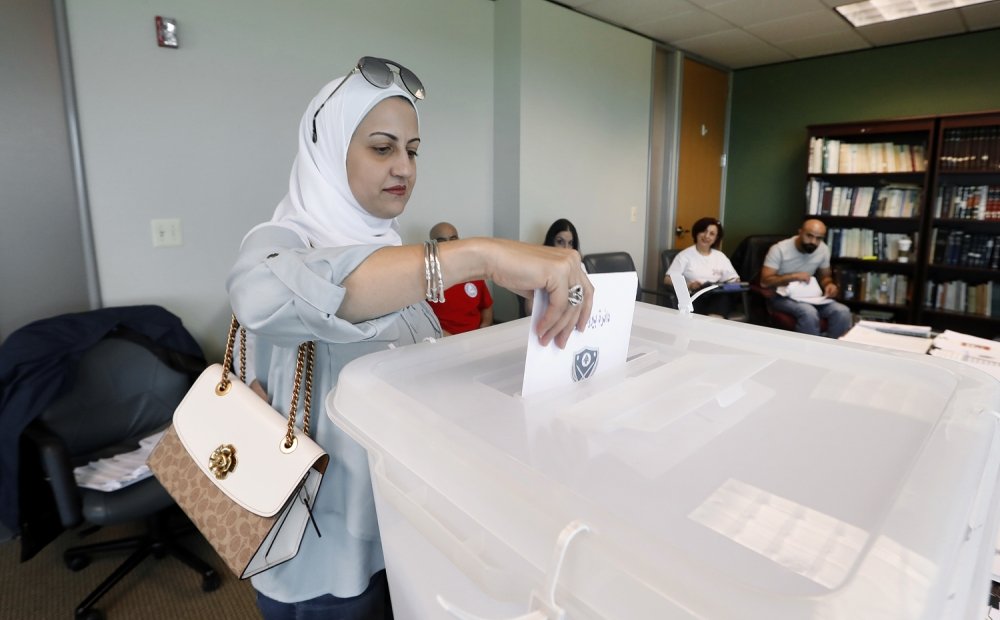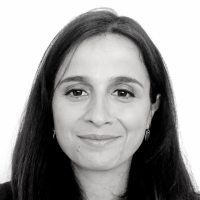Ground Truth Briefing | Why Lebanon's Parliamentary Elections Matter

On May 6, Lebanon held parliamentary elections for the first time since 2009. In this Ground Truth Briefing, veteran observers of the Lebanese scene – two on the ground in Beirut – analyzed the post-election results and what they mean for the country, regional powers, and U.S. policy in an increasingly volatile part of the world.
The Middle East Program at the Wilson Center and Safadi Foundation USA present this Ground Truth Briefing as part of the Lebanon Ideas Forum.
Selected Quotes
Aaron David Miller
“It would appear that Hezbollah has gotten stronger and there is a great fear that somehow, as one commentary put it, the Lebanese have to make a decision on whether or not it is an Arab or Iranian state. I think that is a little much; however, what is the reality?”
“I have this gnawing sense that the basic problem is that Lebanon is hostage to two forces that nations have a hard time coping with and altering: where they are – their geography – and what they are – their demography.”
“There was momentary hope, I suspect, that once the Syrian boot was up from the Lebanese’s necks, things could improve – but now, of course, we are into a new phase, another boot, on the Lebanese political system.”
“It is also a function of the reality of the nature of the Lebanese system and the absence of a viable, sustainable covenant between the governed and those who govern, on one hand, given the minority nature of so many of the confessional groups... and then the other grim reality that Lebanon is sandwiched between two powers who are determined to protect their own interests at the expense of Lebanon’s national interests.”
Sami Atallah
“Women have gained two extra seats, but it is still a dismal record. Most of the women candidates are active in civil society... When we looked at the women, they are more educated, younger, and more professional.”
“Hezbollah did increase its block, but that is not what is significant here; it is that they probably gained 5 or 6 additional seats, particularly Sunni seats, because then they will have some sort of Sunni coverage for their work… Lebanese Forces, the anti-Hezbollah party, doubled its size.”
“The biggest loser I think is the Lebanese citizen… It’s very unfortunate… Parties failed to talk about any of the important issues about the citizen’s welfare or debate ideas [during the campaign], and they again resorted to sectarian discourse across the board to get all people to vote and wins seats. So this is the sad part of this election, whereby you hope that you will get some sort of accountability, but that did not take place.”
Joyce Karam
“There is no change in the Lebanese armed forces and in the security forces’ leadership, which is very important for the U.S., and if we look at the election itself, how it was carried out, there is some good news for Washington. It was largely peaceful… The bad news is that Hezbollah and some of its pro-Assad allies who are unfavorable in Washington are making a comeback.”
“So far, there is no clear winner or a distinct grand coalition in place, which could mean a delay in forming the government or a vacuum, which is also not good for the U.S., which is looking for stability.”
“While I don’t see this election changing U.S. support, other events, perhaps, could. [The U.S. withdrawal from the Iran nuclear deal] or U.S.-Iran escalation in the region – that could bring Lebanon into the fold. We could see maybe Hezbollah deciding to either choose or work to isolate Hariri or try to pick another candidate to head the government or retaliate in other forms through Lebanon if a U.S.-Iran escalation were to take place.”
Sarkis Naoum
“It is not certain whether the alliance [between Hezbollah and FPM] can be maintained... Hezbollah has a lot of suspicions about Gebran Bassil and [Nasrallah] thinks that President Aoun is practicing his prerogatives in a way that they will not accept. They call him ‘the strong president,’ and what they mean by that is that he is practicing the prerogatives set by the pro-Taif Agreement, and this is not acceptable in Lebanon by all Muslims. That’s why we all have to see if the alliances will hold and we will have to see if the Sunnis, led by Hariri, the Future Movement, and the Aounist alliance will hold, because Hezbollah is afraid.”
“If Trump pulls [out of the Iran nuclear deal], I think the repercussions on Lebanon and the region, Syria and Iraq, will be very bad, because Iran will continue to implement its expansionist project in the eastern Mediterranean… and will continue to support Hezbollah in Syria… Hezbollah and Iran will be forced to tighten their control over Lebanon, but they can’t do that because now, they have been, and still are, in indirect control, and if need be, they could practice a direct control.”
Speakers

Introduction

Moderator

Hosted By

Middle East Program
The Wilson Center’s Middle East Program serves as a crucial resource for the policymaking community and beyond, providing analyses and research that helps inform US foreign policymaking, stimulates public debate, and expands knowledge about issues in the wider Middle East and North Africa (MENA) region. Read more
